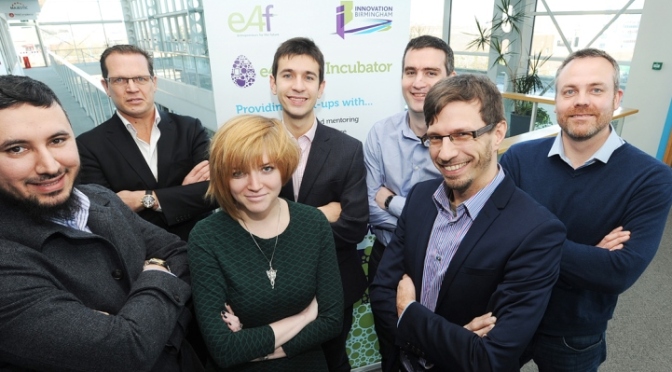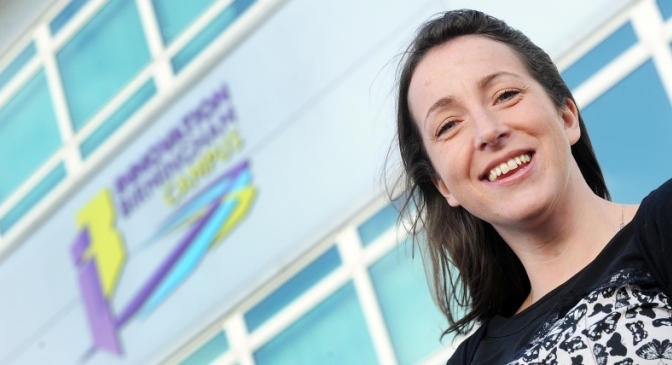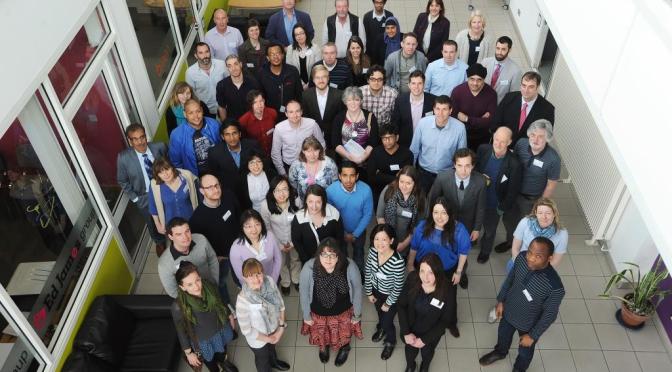A record-breaking 50 climate change practitioners are being sought for the 2015 Climate KIC‘Pioneers into Practice’ European exchange programme. The €400,000 programme is being delivered by Innovation Birmingham for the fifth year running.
35 Pioneers are being sought from the Midlands area, with a further 15 being recruited from Ireland. The online application process is now live, with the deadline set as 23rd March 2015. The participants will be selected based on their existing experience in the climate change sector, with sought specialisms including civil engineering, housing, community activism, as well as research fellows.
During previous placements, Pioneers have identified significant savings, helped to develop new products and completed specific tasks – at no cost to the host company. The programme enables relationships to be developed amongst experts across Europe’s low carbon economy, and in some cases the Pioneer has gone on to work for their host, once the programme has completed.
Successful applicants will commence the programme with a two-day workshop in May, which prepares the participants for their four-week domestic placements, which take place in May – June. This is followed by another four-week placement within a company based in continental Europe during autumn 2015. Each participant will receive up to €8,000 in staged payments over the duration of the programme.
Applications for host companies are also being sought. Host companies where the Midlands-based domestic placements will be carried out have in the past included Accord Housing, Arup, Aston University, Birmingham City Council, Birmingham City University, Cenex, Coventry University, Encraft Engineering, Green Hill Sustainability, Heat Genius, Loughborough University, New Leaf, Northfield EcoCentre, Optima Housing, Orbit Housing, Shropshire County Council/Marches LEP, Worcestershire County Council, University of Warwick, University of Wolverhampton and Ventive Ltd.
Katharine Fuller, Innovation Birmingham’s Senior Manager for European projects said: “The Pioneers into Practice programme enables those at the forefront of climate change innovation and implementation to have the opportunity to work abroad and in innovative companies closer to home. The programme has demonstrated that being parachuted into an organisation – outside of regular comfort zones – is the best catalyst to new ways of thinking.
“The diverse mix of backgrounds and expertise is what makes this programme so successful for both the host organisations and the Pioneers. They take their experience and skills up a level, which in turn delivers a more effective and creative group of climate change practitioners working across the region.
“This is a challenging programme; the intensive transition management workshop, followed by two placements – including one overseas – means that the Pioneers have to quickly adapt into new work environments. This gives them the opportunity to forge new relationships, acquire knowledge and broaden their experience. The process generates outstanding levels of innovation, often leading to project and business opportunities that extend well beyond the end of the programme.”
Tim Armitage, Associate Director at Arup, found the reciprocity of the programme to be a good fit: “Hosting a Pioneer was challenging, but ultimately worth the work. We also enrolled a member of my team as a Pioneer, and both of his placements created new long-term business links for Arup. It was a tremendous learning experience for us, and one we will be embracing in the future.”
Participants from the Midlands will undertake their four-week overseas placement during September and October 2015. The host organisations will be based in the other KIC participating regions; Valencia (Spain); Emilia Romagna (Italy); Hessen (Germany); Lower Silesia (Poland) and Central Hungary.
Following the opening session, further workshops will be held in the West Midlands during June and November 2015, bringing all the participants back together. Every Pioneer into Practice from across Europe will meet at the International Workshop, being held in Birmingham at the end of October 2015.
Pioneers into Practice is a Climate Knowledge Innovation Community (Climate KIC) project. Climate KIC is the EU’s main climate innovation initiative, and was one of the first KICs created by the European Institute of Innovation and Technology (EIT) in 2010. The EIT is the European Union body tasked with creating sustainable European growth and jobs while dealing with the global challenges of our time. www.climate-kic.org
To find out more about Climate KIC and its exchange, funding and start-up support programmes sign up for free to attend the Climate KIC West Midlands 2015 ‘Kick off event’, Tuesday 24th February 2015
To read more news from the Innovation Birmingham Campus visit its news page>








